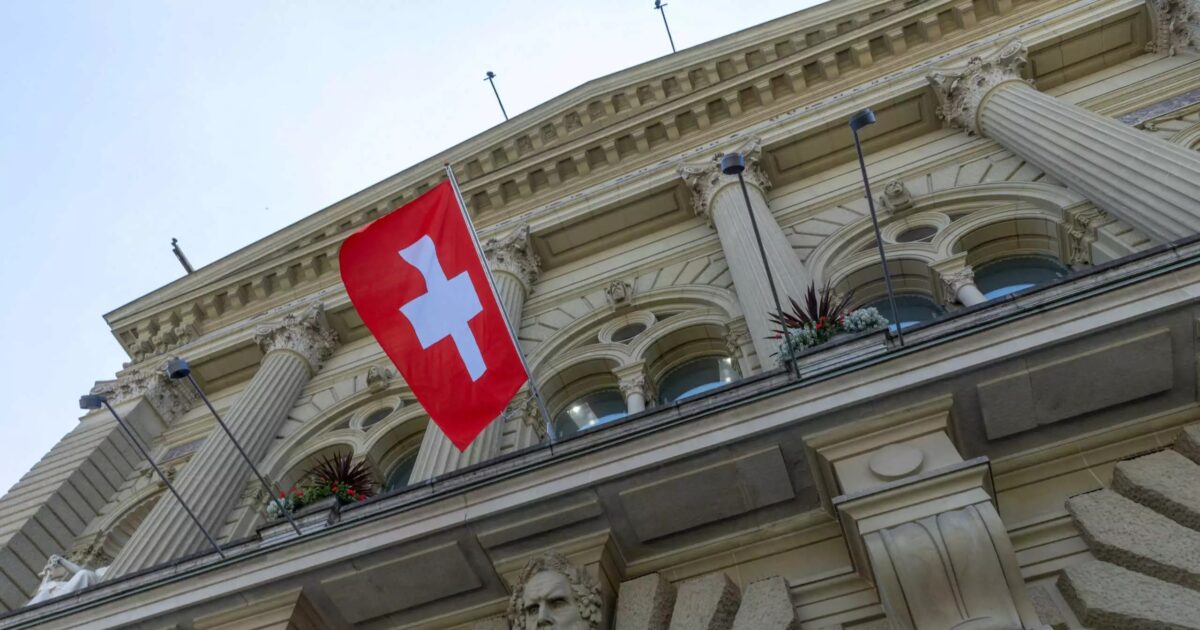On July 4, on the day of American independence, the government of Swiss In Berne he thought he had secured an agreement-bomb that would limit any duties to 10% and would prevent hard penalties.
Three and a half weeks later, when Donald Trump announced the final package, the country was confronted with duties 39% higher than any other developed economy and above the European Union (EU). The shock came a few hours before the national holiday of August 1st, while the latest desperate attempt by Switzerland President Carin Keler-Zutter to “save” the agreement in Washington reached the void as the White House did not respond.
According to a Bloomberg report, the initial phase of “Hope” begins on April 24, when Keller-Zutter and Vice President Guy Parmelin meet US Finance Minister Scott Besed. Swiss reading was positive: a small, open economy that has already abolished industrial duties and is not considered a “problem” for Washington. Berne has proposed a package of concessions with limited openings to agriculture and faster approvals for American medical products, while reminding the investments of billions announced or implemented by Roche and Novartis in the US. In return, he demanded a duty ceiling at 10% and expressly assurance that US “national security investigations” would not end up in punitive drug tariffs.
In May and June, the Office of the Commercial Representative (USTR), under Jameson Green, made more than 20 rounds of contacts with the Swiss, often through video calls and Whatsapp. Bessed remained in touch, and on June 23, Keller-Zutter spoke to him by phone and said that “we are close”. A few days later there was a draft agreement, which envisaged, inter alia, that Swiss pharmaceuticals would not seek to supply some of China. Beyond that, testimonies diverge: In one version, Bessed, Green and Commerce Minister Howard Lutnik implied that they would support the framework before the president. Otherwise, they clarified that they would present the pros and cons, but the decision was exclusively Trump. Without direct “yes” from him, the Swiss cabinet gave official approval on July 4, based on the speech of its ministers.
The “disaster” came with direct communication. On July 31, at 14:00 Washington, Trump phoned Keller-Zutter. After wishes for the next day’s national holiday, she accused her of “her country stealing the US”, citing a $ 40 billion trade deficit. For Bern, the issue of the bilateral balance had never been central, and you counterattacked that the deficit in goods is almost completely offset by US imports of services, and that Switzerland is the seventh largest foreign investor in the US. Two narratives of the call have been in circulation since then: One wants the president to “lose” the political game by giving a lesson of principles to a leader seeking trophies and the other argues that the decision was already being made and the conversation is simply formal. Keller-Zutter herself, faithful in an institutional style, said: “We do not make promises that we cannot adhere to”, while Trump allegedly commented on CNBC: “He was kind, but he did not want to hear.”
The “despair” culminated on August 1st. Speaking to the historical Romili, the president attempted to calm the spirits: “Switzerland is learned in storms.” But the criticisms thickened: Trump did not offer a “symbol of victory” according to other leaders’ standards, nor was there an alternative plan. Measured days before the duties were activated, the government chose diplomacy instead of retaliation. The negotiators handed over an improved proposal, ranging from additional investment commitments to US LNG and defense markets. On Tuesday before the enforcement, Keller-Zutter was unexpectedly threw in Washington without secure appointment at the White House. Her only official meeting was ceremonial, with Foreign Minister Marco Rubio, from which nothing was negotiated. One hour before landing again in Switzerland, duties were activated.
The financial impacts were immediate. Companies have designed extraordinary plans to carry out overseas to bypass the new rate, or “frozen” temporary traditions to the US. The government has a mission to Washington in search of exceptions or relief, but the sense of national “exception” has been shaken: the idea that a small, neutral, institutionally reliable economy would receive mildly treatment by definition was not confirmed. The episode has rekindled the debate on Switzerland’s “lonely” strategy: in times of geopolitical friction, the process and technical arguments are not enough if the final decides political trophies.
According to Bloomberg analysts, the political lesson is triple. First, without the explicit commitment of the US President himself, no “progress” with ministers are safe. Secondly, small countries must weigh not only the content of the agreement, but also the narrative that allows their interlocutor to appear. Thirdly, the narrow index of the bilateral balance of goods, however incomplete it may be, can be politically dominated by a wider image that includes services and investment. In practice, the challenge from now on is double: to detach targeted exceptions for critical sectors such as a watchmaker and a pharmaceutical industry and to redesign access to the larger market of the planet with a realistic alternative chains and productive bases. Keller-Zutter herself sums it up coldly: “The negotiations occur in the negotiations. You have to live with them and continue. “
